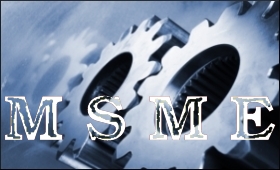Union Minister for Micro, Small and Medium Enterprises Nitin Gadkari informed the Lok Sabha in a written reply that 5,87,416 employment opportunities were created by giving margin money subsidy of Rs. 2070 crore to 73,427 projects during the year 2018-19.
The Ministry of MSME implements credit linked subsidy scheme namely Prime Minister’s Employment Generation Programme (PMEGP) to promote self-employment opportunities through establishment of micro-enterprises in non-agriculture sector.
He also added that Government of India also implements Pradhan Mantri MUDRA Yojana (PMMY) to provide collateral free loans upto Rs 10 lakh.
In another reply, Gadkari informed the Lok Sabha in a written reply today that 154 Clusters when approved during 2018-20 against a target of 100 under Scheme of Fund for Regeneration of Traditional Industries (SFURTI) to promote traditional Industries and Artisan.
In the year 2018-19, 70 proposals and in 2019-20 (till 31.01.2020), 84 proposals have been approved, which is a substantial jump over the period from 2014-15 to 2017-18, when against a target of 71 clusters to be set up during 12th Five Year Plan period, 72 clusters were approved till 2017-18.
He added that these clusters have been setup across the country including in NER and Andaman & Nicobar. As many as 54 clusters have become functional so far, out of which 51 clusters were made operational during 2019-20 (till 31.01.2020).
The sectors covered under SFURTI include Khadi products, Honey & related products, Coir & related products, Handloom, Traditional dress making, Handicraft, Traditional arts like – Kalamkari, Dokra art, Aipan art, Food processing, Bamboo products etc.
The Minister also informed that the main objective of the SFURTI scheme is to organize the traditional industries and artisans into clusters to make them competitive, provide support for their long term sustainability, to provide sustained employment for traditional industry artisans & rural entrepreneurs, to enhance marketability of products etc.
The scheme provides support in the form of two interventions viz. Hard Interventions and Soft Interventions. Hard Interventions include creation of Common Facility Centres (CFCs), Raw material banks (RMBs), Up-gradation of production infrastructure, Tools and technological up-gradation etc.
Soft Interventions include counselling, trust building, skill development and capacity building etc.
Gadkari further stated that the scheme was revamped in 2014-15 and further revised in 2017-18. Under the revised scheme, two types of clusters are set up. The maximum financial assistance provided is Rs. 2.50 crore for a Regular Cluster (upto 500 artisans) and Rs. 5.00 crore for a Major Cluster (more than 500 artisans).
To expand the reach of the scheme, 20 more Nodal Agencies have been appointed under the scheme during 2019-20 besides the existing 8 Nodal Agencies. KVIC has also been asked to develop Honey clusters as per SFURTI Guidelines.
Published On : 06-02-2020
Source : SME Times

